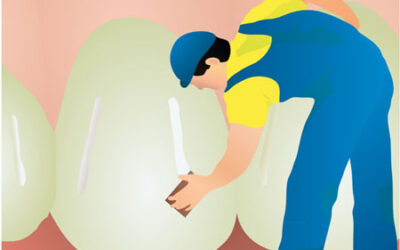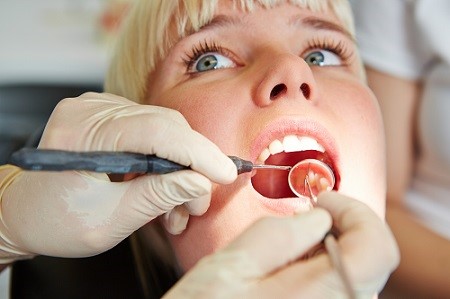
Fluorosis is a condition that will affect the appearance of the teeth. The condition is caused by excess exposure to fluoride. This overexposure occurs during the first eight years of life when the teeth are most vulnerable.
Once the permanent teeth come into the mouth, the ones affected by this condition will appear discolored and may have white markings on them. Teeth that are severely affected may appear worse than others.
Causes of Fluorosis
There are a couple of reasons why fluorosis may occur. One of the most common reasons is because children swallow toothpaste instead of spitting it out after brushing. The other reason is due to having an intake that is high in fluoride such as fluoride supplements and fluoride rich water or juice.
Treatment of Fluorosis
The type of treatment needed will depend on how bad the case of fluorosis is. If the case is very minor, treatment may not even be required.
When fluorosis is extreme, whitening treatments, crowns, veneers, and bonding may be used to help correct the situation.
Prevention of Fluorosis
Preventing fluorosis is important and it does not take much to do so. Monitoring the amount of fluoride substances your child uses is the best way to do so. If your water at home is fluoride enriched, consider switching to a different type of water.
You should also limit the amount of toothpaste and mouthwash your child is using. This will help reduce the chance of ingesting too much. If your child does ingest too much fluoride at once, they may become nauseous, experience diarrhea, vomiting, or tummy aches.
Putting it all Together
It is important to monitor how much fluoride your child is getting on a regular basis. Too much will cause fluorosis while not enough can harm their teeth as well. If you think your child is suffering from fluorosis, contact your dentist in Kennewick WA today to discuss treatment options.
- 10 Things You Need to Know About Invisalign Teen -
- Braces For Adults -
- 5 Questions about Esthetic Veneers, Answered -
- Are Dentures Right For You? -
- Endodontist vs Periodontist, and Prosthodontist: What’s the Difference? -
- The Ideal At-Home Routine for Caring for Your Teeth -
- 5 Signs It’s Time for a Dental Check-Up -
- Five Reasons Why Over-the-Counter Teeth Whiteners Are a Bad Idea -
- Tips to Conquering Dental Anxiety -
- Seven Proven Ways to Fight Halitosis -



